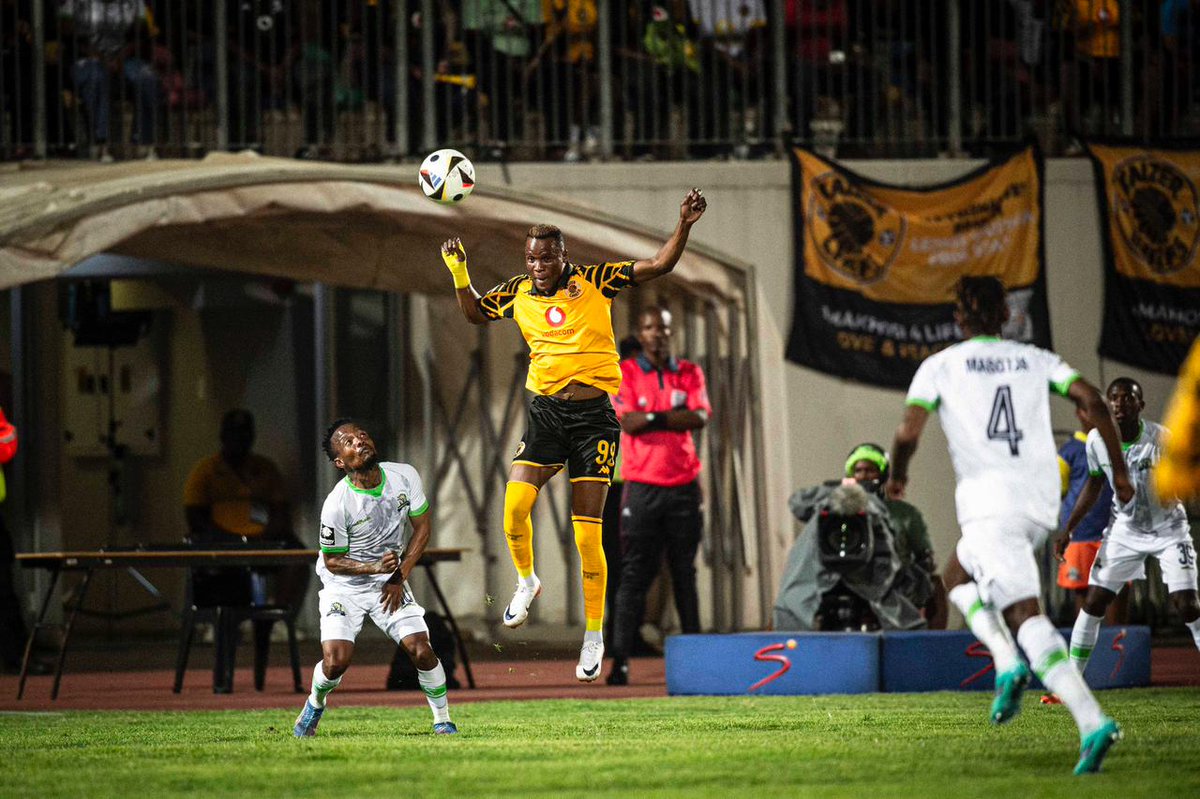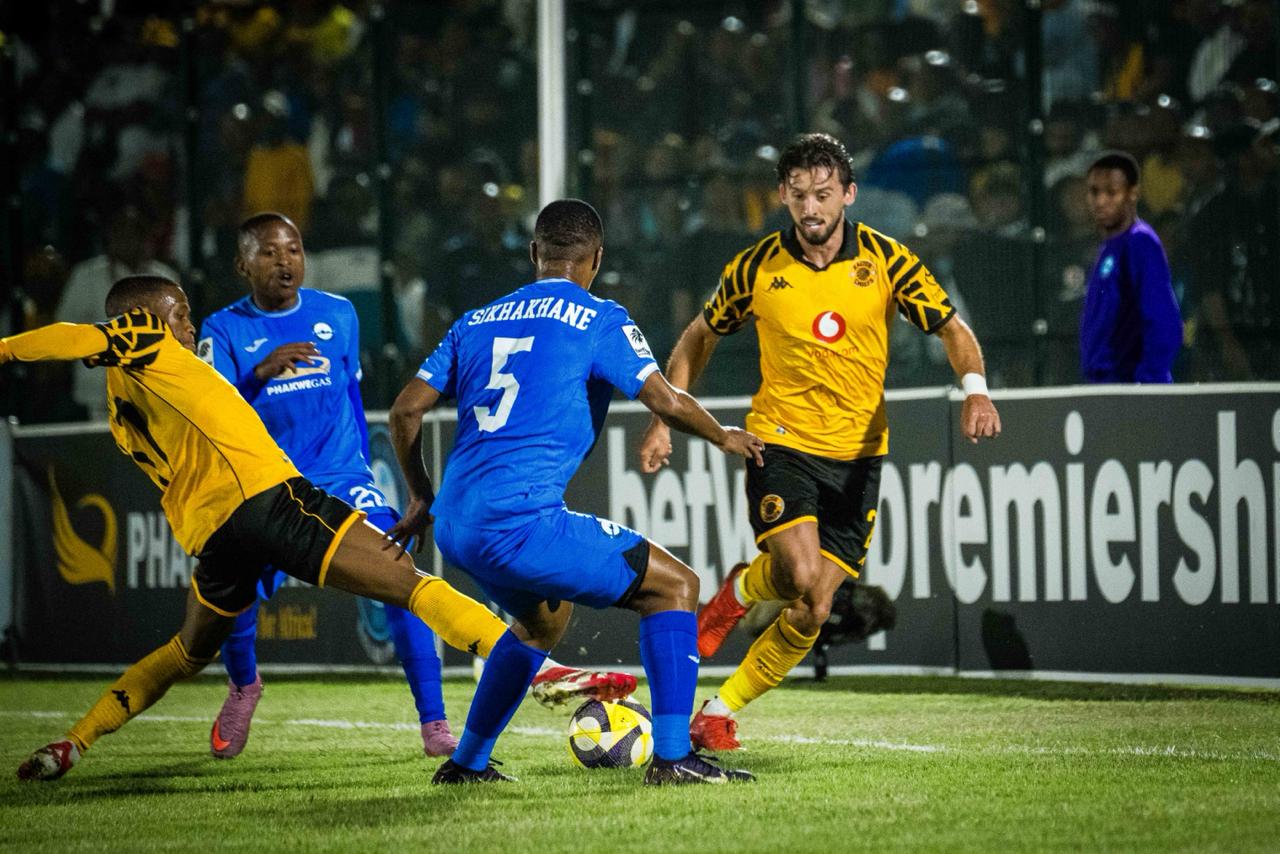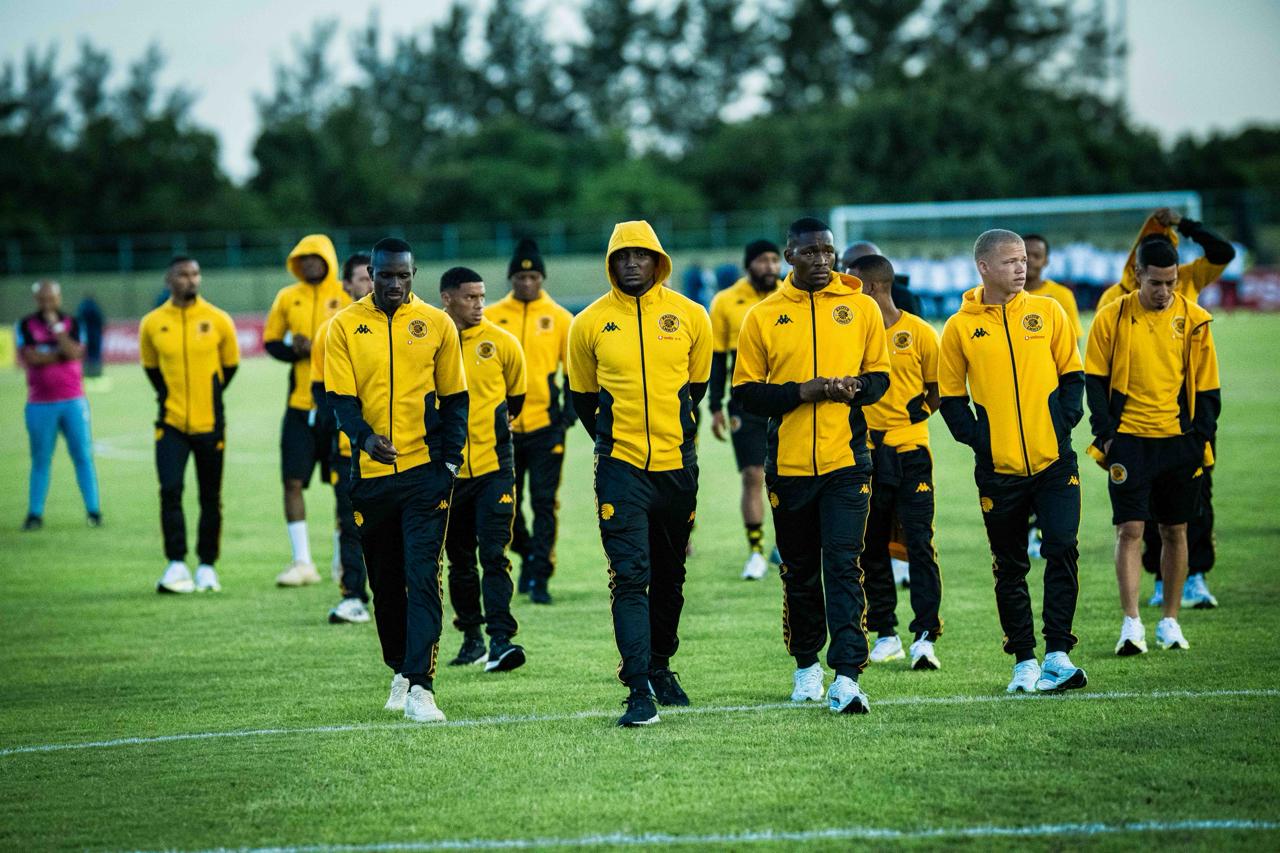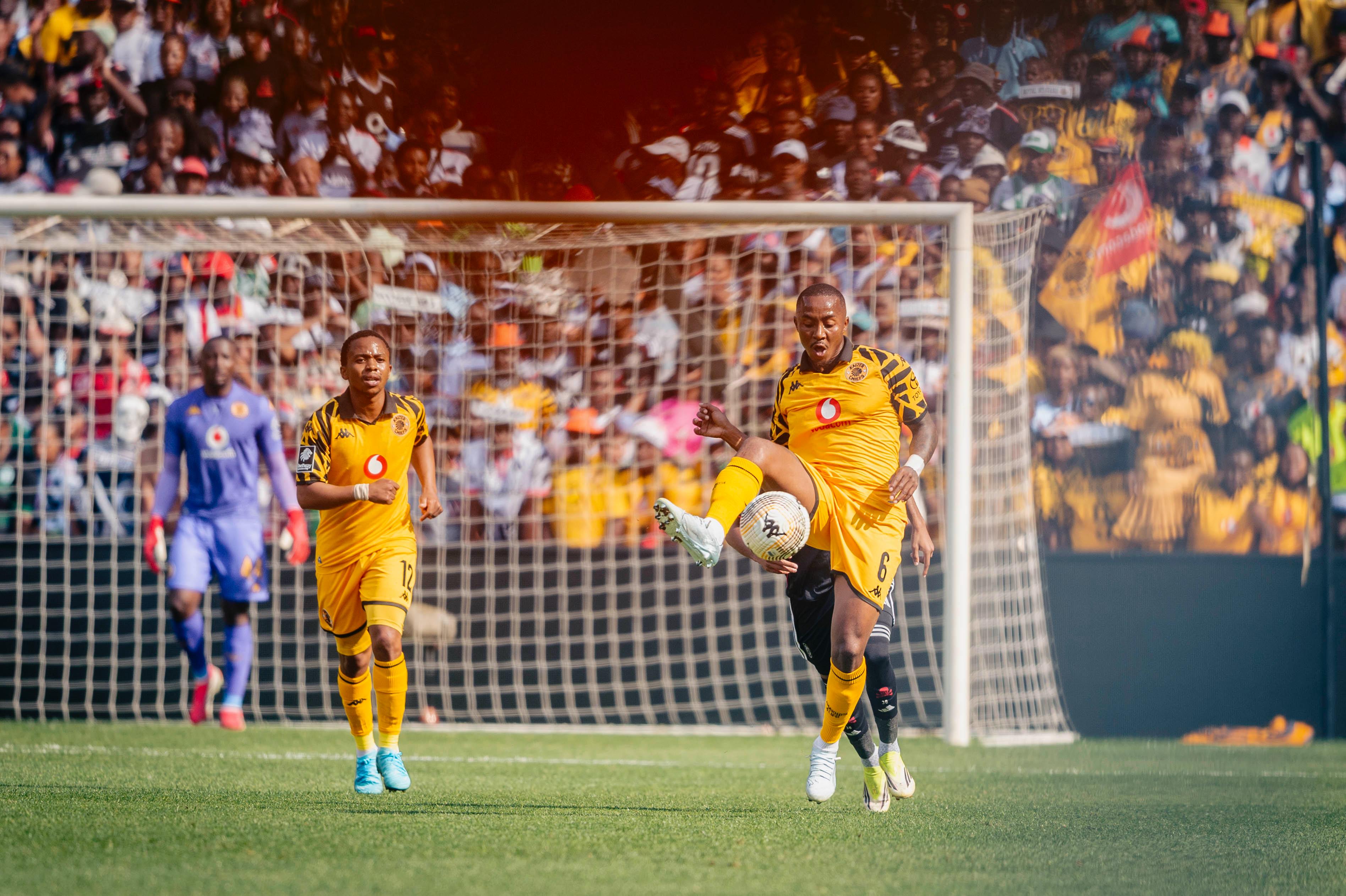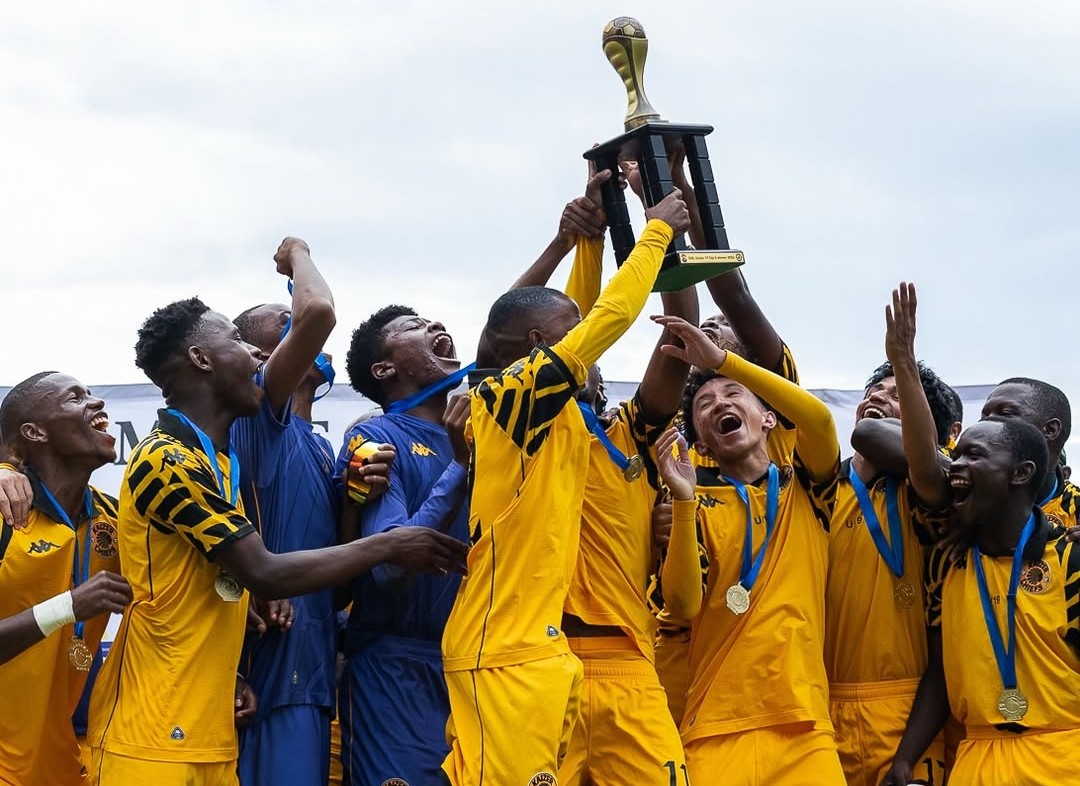Posted in News on Dec 24, 2008.

Long before Kaizer Chiefs’ former PRO Putco Mafani invented the ‘Vat Alles’ campaign in 2001, the Amakhosi actually won everything available in 1984: the league title, the Mainstay Cup, the John Player Special Cup and the Sales House Cup. A brick in Chiefs’ defensive wall that year was Jimmy ’Brixton Tower’, a lanky Afrikaner, who was as strong as an ox.
“We worked as a unit that season, despite having stars like Ace Ntsoelengoe and Teenage Dladla,” reflects Joubert on that fantastic year. “We all blended well and we had a very nice balance in the team.”
Joubert joined the Amakhosi in 1983 at the age of 31. “We were very strong in the centre of defence,” he continues. “Garth Allerdyce, who was often my partner in the centre, had speed, while I had height and experience. We complimented each other very well.” The lanky Afrikaner also remembers how their coach Joe Frickleton made the team fit: “He really took us through our paces. Ace Ntsoelengoe, for example, hated all that running. Ace had unbelievable skill, but he was a bit lazy, especially when it came to running hard at training.”
Joubert was born in Durban and joined Durban City at the age of six. “That’s part of the problem these days,” the Chiefs legend explains. “There are presently only a few clubs in South Africa where you can start playing from young. That’s only possible at clubs like Highlands Park, the University of Pretoria (Tukkies) and Arcadia Shepherds, but none of these clubs are in the Absa Premiership. Most talented kids are therefore not affiliated with any club until the age of 14 or 15, when they join the development structures of one of the PSL sides. A kid never makes up those eight years he has lost out on. That was the success in the past, white kids would join clubs from a young age, while the black kids usually played soccer in the streets, getting their skill from there. However, there is so much more outside soccer these days, like computer games and movies, that young talented kids from all backgrounds should start playing at grassroots level from the age of six. All premiership clubs should have youth structures from that age or at least have an agreement with a club that does. Besides, the best coaches should work at the development level. Coaches must be able to see youth development as a career path. Of course, that also means that they should be paid well. Only if that happens, I see a bright future for South African soccer.”
After having moved to Johannesburg at the age of 13, Joubert joined Southern Suburbs. “That was one of the top clubs in those days,” adds Joubert. “I played for Suburbs until the white National Football League (NFL) folded in 1978, joining Swaraj in the multiracial NPSL.” Joubert started his soccer career as a striker and with 30-odd goals, he became the top goal scorer, helping his side to the league title. The following season, he joined Highlands Park, becoming the league’s top goalscorer in 1979. The following season, Highlands coach Joe Frickleton moved Joubert to defence. “We had such an abundance of strikers at the time,” he comments, “for example, at Highlands, we had great strikers like Bobby Viljoen, Des Backos and Irvin Salmons. But we struggled at the centre of defence and that’s why Frickleton moved me to that position.” After Highlands, Joubert played in 1981 and 1982 for Dynamos, before joining Chiefs in 1983.
Talking about strikers, Joubert feels that Glen Jordan is probably one of the most underrated forwards Chiefs ever had on their books. “The Amakhosi fans never really warmed up to Glen,” says Joubert, “but he was a great target man. Glen could hold up the ball, distributing the ball well, and he created a lot of chances thanks to his aerial power. Jordan would be in my team any day.” The first trophy won by the ‘Brixton Tower’ at Chiefs was the 1984 John Players Special Cup. “We played against Bush Bucks at Ellis Park,” Joubert fondly remembers, “there was a crowd of well over 60, 000 supporters in the stadium. That was an amazing feeling, as I had never before played in front of such a huge crowd.
“Chiefs was even in those days a very professionally run club,” Joubert explains Amakhosi’s success over the years. “For example, Samora Khulu once popped up at the airport for an away game in his jeans. He was supposed the wear the Chiefs kit and Samora was sent home. Pirates, meanwhile, always looked scruffy with everybody wearing something different. It’s important to show that uniformity. A dress code is very important. If a team looks sloppy, even on the field with shirts hanging out, a team starts playing in a sloppy, undisciplined way. However, Chiefs players always looked neat and, to me, that was part of the Club’s success.”
Joubert usually roomed together with Chiefs goalkeeper Peter Bala’c (“what a fantastic keeper”). “Peter was in love with horse racing,” reflects the former Amakhosi defender, “and he would gamble on horses throughout the night, while I tried to get some sleep.” Meanwhile, on trips to away games, Joubert used to play scrabble with Teenage Dladla. A white Afrikaner easily mixing with his black teammates was a rarity in those dark days of apartheid. “We always had black friends,” Joubert notes, before explaining that “my wife Sharon comes from Transkei. Her family used to run a trading store in the rural areas and, as a result, Sharon was fluent in Xhosa before she spoke English. That’s also why many blacks used to visit our house. We never saw that as a problem. However, I do admit that our neighbours often did have a problem with it. But we didn’t care about that.
“I am disappointed to see so few white players in soccer these days,” Joubert points out. “Safa and the PSL must do more to give white kids the feeling that soccer is also a sport for them to pursue. One way of doing this is to give more attention to the former white soccer legends, which will give young kids a sense of realising that they have an opportunity to succeed in the game.” He also would like to see that “Chiefs sets up a legends box for all their home games. It’s important that former Chiefs legends attend Amakhosi matches and still feel part of the Club.”
Nowadays, Joubert is the financial director NIC, an engineering company, and he’s a member of the PSL’s Disciplinary Committee. He feels that soccer in South Africa is “mediocre with a lack of skills and some atrocious passing. Sometimes it looks like ping-pong with each team continuously losing the ball. Again, it all goes back to the poor development of our youngsters.” However, there is one thing Joubert wants to stress before we part ways: “I will be always be an Amakhosi!”

